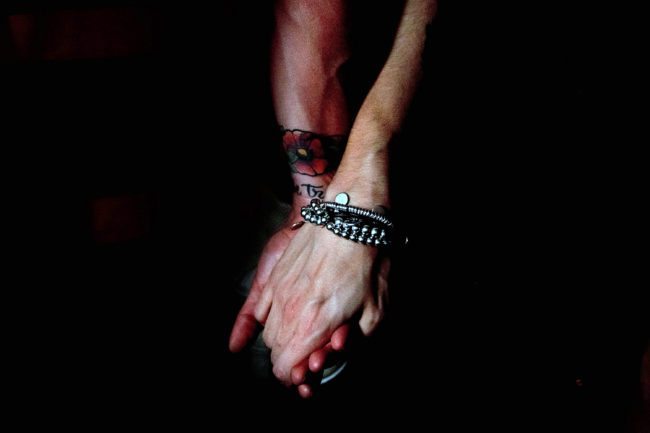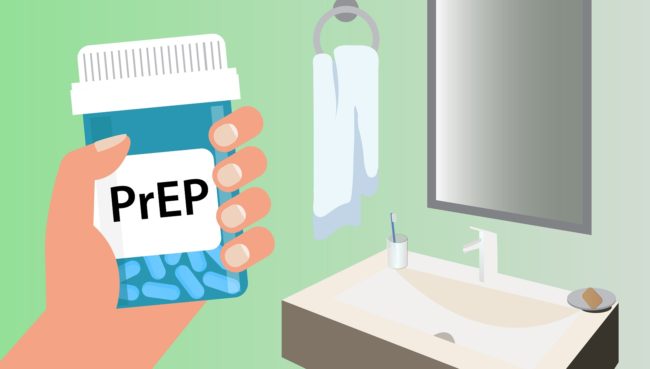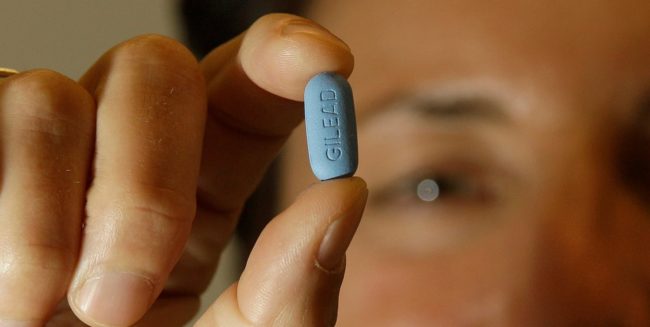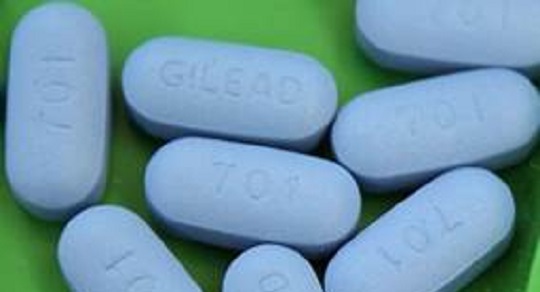A major sexual health hub has launched a new scheme to provide access to HIV-preventing drug PrEP (pre-exposure prophylaxis).
56 Dean Street, in central London, is now offering a prescription service for the drug called PrEP Shop.
An NHS funded trial of the drug, designed to assess demand, has already filled its quota, leaving many men looking for ways to access PrEP.
The PrEP Shop will provide a generic version of the drug for £55 a month for those who missed out on a spot in IMPACT, the official NHS trial.
The scheme is a first for the NHS as it prescribes a generic version of PrEP (in place of a more costly branded version, Truvada) outside the IMPACT trial.
The official website says: “We’ve created PrEP Shop to make it easier for you to buy generic HIV PrEP from someone you trust. By using the buying power of the NHS we aim to keep prices as affordable as we can.”
Last year an investigation into the economics of PrEP found that could save the NHS as much as £1bn.
 (Photo by Gonzalo Arroyo/Getty Images)
(Photo by Gonzalo Arroyo/Getty Images)
Deborah Gold, Chief Executive of National AIDS Trust (NAT) said: “We applaud Dean Street for this decision to do all it can to increase access to PrEP.
“However the fact that an NHS clinic has needed to create this additional option exposes the inadequacies of the current trial which is evidently not meeting need. Places in the trial are filling far too quickly, especially in cities.
“NHS Trusts should not have to taking these steps to do right by their patients.
“We call on NHS England, as a matter of urgency, to expand the limits on trial participants so that the need for the drug can be fully monitored (as per the trial’s aims) and, more importantly, so that people can prevent themselves from getting HIV.
 PrEP
PrEP
“Further, NHS England must now start working towards routine commissioning of PrEP.”
Research released last year found that funding PrEP on the NHS would save around £1 billion over an 80 year period, according to a new study.
The financial analysis, published in the Lancet Infectious Diseases journal, came from a team at University College London.
The study from UCL predicted that a quarter of HIV cases would be prevented if PrEP was given to men who have sex with men.
 PrEP
PrEP
If provided routinely the cost to the NHS would initially rise, as it spends money on PrEP and treating existing cases of HIV.
Related: What is PrEP and how can I get it? Everything you need to know about HIV-preventing drugs
However, the latter cost would plummet as the infection rates fall, and the analysis predicts that after around 40 years the savings made and spending on PrEP would be equal.
After a further 40 years, the prediction is that £1 billion would be saved.
Dr Alison Rodger of the UCL team of BBC News: “Not only is it a highly effective treatment, it will save money. It’s a no-brainer so it’s a good thing to do.”
Medical director of the Terrence Higgins Trust Dr Michael Brady added: “It is important that all who need PrEP can access it.
“Evidence like this reinforces the need for PrEP to be fully commissioned and given a long-term, sustainable home on the NHS in England.”
PrEP can drastically reduce people’s chances of being infected with HIV and is recommended for groups considered to be at high risk of exposure to HIV, most significantly men who have sex with men.
Organisers of the NHS England IMPACT trial said: “The trial is a pragmatic health technology assessment of PrEP and its implementation, that is, it aims to answer the key questions under real world conditions and at sufficient scale.
“In addition, the new trial will assess the impact of PrEP on new HIV diagnoses and sexually transmitted infections. The results will inform service commissioners (funders) on how to support clinical and cost effective PrEP access in the future.”
Recent research found that the number of gay and bisexual men diagnosed with HIV in the UK has fallen by more than a fifth.
The figures showed a 21 percent fall in new HIV infections among men who have sex with men from 3,750 during 2015, to 2,810 in 2016.







